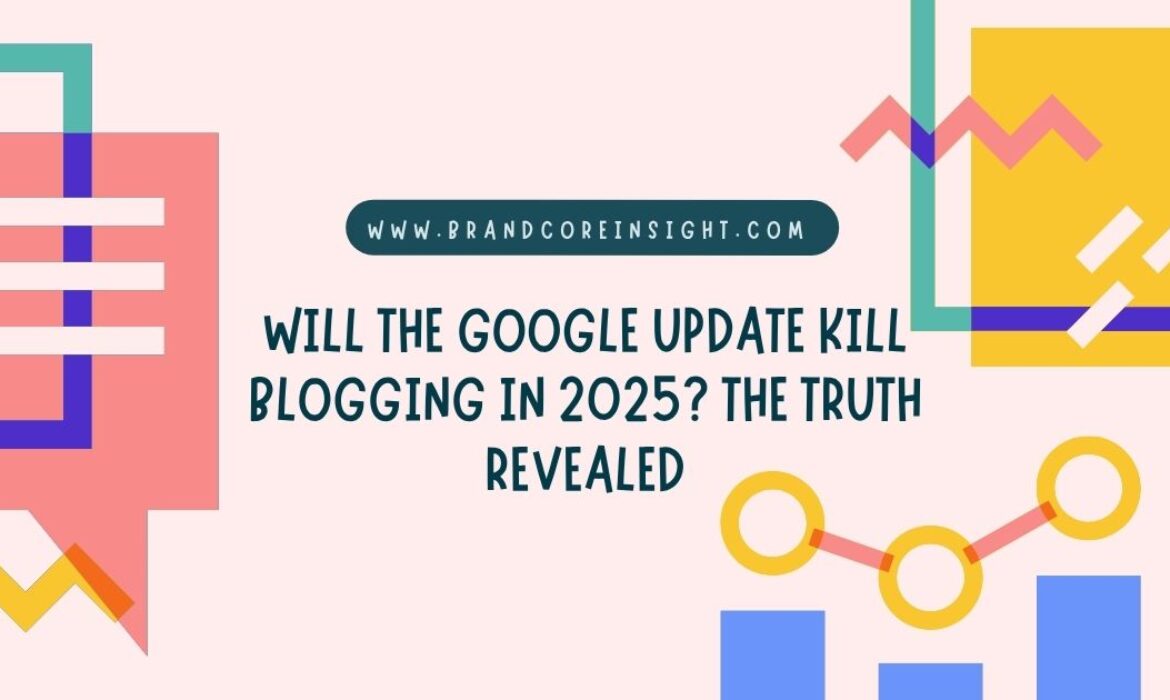The digital world is buzzing with panic: “Is blogging dead?” With every Google update, content creators and businesses fear their websites will vanish from search results. The rise of AI-generated content, zero-click searches, and Google’s Search Generative Experience (SGE) has many wondering:
🔴 Will blogging survive in 2025?
🔴 Are Google updates making traditional blogs obsolete?
🔴 Should you pivot to video or social media instead?
This deep dive explores whether blogging still has a future—or if Google’s algorithm changes will bury it for good.
How Google Updates Have Changed Blogging
1. The Rise of AI & Automation
Google’s Helpful Content Update (HCU) and AI spam policies now penalize low-quality, auto-generated content.
📉 Impact on Bloggers:
- AI-written blogs without human editing are getting flagged.
- Thin content (500-word fluff pieces) loses rankings.
- Sites relying on content farms are collapsing.
✅ Survival Strategy:
- Human-first content with expertise.
- Long-form, in-depth guides (2,000+ words).
- AI-assisted (not AI-replaced) writing.
2. Zero-Click Searches & Featured Snippets
Over 50% of Google searches now end without a click (SparkToro). Google’s SGE (Search Generative Experience) provides instant answers, reducing blog traffic.
📉 Impact on Bloggers:
- Informational queries (“how to,” “best tips”) get answered directly in SERPs.
- Listicles and definition-based posts lose visibility.
✅ Survival Strategy:
- Target “commercial intent” keywords (e.g., “best for [use case]”).
- Optimize for voice search (question-based queries).
- Create interactive content (quizzes, calculators).
3. E-E-A-T Dominance (Experience, Expertise, Authority, Trustworthiness)
Google now prioritizes first-hand experience over generic advice.
📉 Impact on Bloggers:
- Affiliate sites with no real testing are sinking.
- Anonymous “ghostwriters” struggle to rank.
✅ Survival Strategy:
- Showcase credentials (author bios, certifications).
- Use case studies and original research.
- Leverage user-generated content (reviews, testimonials).
Is Blogging Really Dying? The Data Says No
Despite doomsday predictions:
- Blogs still drive 80% of website traffic for B2B marketers (HubSpot).
- Long-form content gets 3x more backlinks (Backlinko).
- Google still rewards high-quality blogs—just differently.
Blogging in 2025: What Works vs. What Doesn’t
| Old Tactic (Dead in 2025) | New Winning Strategy |
|---|---|
| 500-word “quick tips” posts | 2,000+ word ultimate guides |
| AI-generated fluff | Human-written + AI-edited |
| Keyword stuffing | Semantic SEO & topic clusters |
| Generic affiliate reviews | Hands-on product testing |
| Anonymous guest posts | Expert-authored content |
How to Future-Proof Your Blog in 2025
1. Double Down on E-E-A-T
- Add “About the Author” sections with credentials.
- Interview industry experts for quotes.
- Publish original research (surveys, experiments).
2. Optimize for SGE & Zero-Click Searches
- Target “how-to” questions with step-by-step solutions.
- Use schema markup for FAQs and how-to snippets.
- Create video summaries (Google prioritizes multimedia).
3. Diversify Beyond Google
- Repurpose blogs into LinkedIn newsletters.
- Build an email list (algorithm-proof traffic).
- Go viral on TikTok/Instagram with blog takeaways.
4. Master AI—Don’t Fear It
- Use ChatGPT for outlines (not full articles).
- Generate custom images with MidJourney/DALL·E.
- Automate SEO audits with AI tools like SurferSEO.
Final Verdict: Blogging Isn’t Dead—It’s Evolving
The Google update isn’t killing blogging—it’s killing lazy blogging. In 2025, winners will be those who:
✔ Write for humans first, algorithms second.
✔ Prove expertise with real-world experience.
✔ Adapt to SGE, AI, and voice search.
The Bottom Line:
🚀 Blogging isn’t dying—it’s upgrading. The only blogs at risk are those refusing to evolve.
















[…] Google’s latest algorithm update reinforces its commitment to high-quality, user-first content. Websites relying on outdated SEO tactics (like keyword stuffing or thin content) will struggle, while those adapting to semantic search, EEAT, and UX optimization will thrive. […]